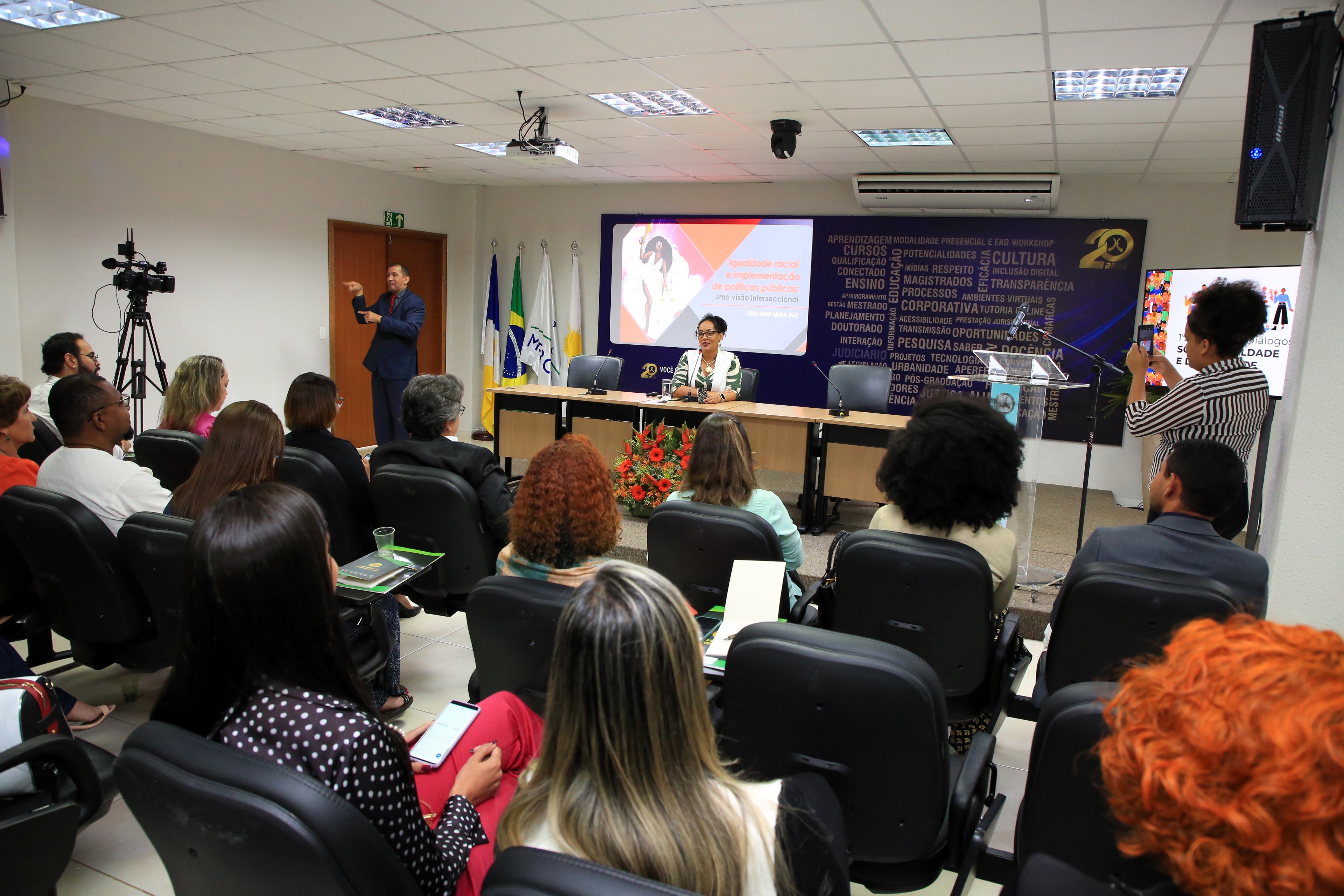
"Black people are not in spaces of power and decision; and when historically vulnerable social groups are prevented from participating in decisions about their own destiny, that is not democracy." Opening the program of the 1st Week of Dialogues on Equality and Diversity, on Tuesday (October 17th), the prosecutor of the State of Bahia Lívia Maria Santana e Sant'Anna Vaz addressed the theme on "Racial equality and the implementation of public policies: an intersectional vision". The event is being held in the auditorium of the Superior School of the Judges of the State of Tocantins (Esmat) until this Wednesday (October 18th) and the program continues on October 19th and 20th virtually. Registrations are still open for several activities.
With a doctorate in legal and political sciences, a master's degree in public law and a specialization in Afro-Latin American and Caribbean studies from the Consejo Latinoamericano de Ciencias Sociales, the speaker - named one of the 100 most influential people of African descent in the world in the Law & Justice issue - brought several reflections to the debate. "This is a necessary dialog. My proposal is for justice with its eyes open, that represents us, that has the face of the people, that knows the people. Because if we don't, we won't be effectively building justice; it will be a justice of the few or a democracy of the like-minded, which revolves around the same hegemonic power," she said.
The prosecutor also spoke about race in the Brazilian legal system and warned of realities that are still very present in the country, such as race being the main factor in violence in the country and black women remaining at the bottom of the social pyramid in the country.
"What does everyone have to do with it?" the speaker asked in her speech, reinforcing the need to turn indignation into action and promote public policies for permanence. "If on one side I have black and indigenous people, who have historically suffered and are suffering the results of historical oppression, on the other side I have people who are still reaping the privileges of this historical oppression," she said. "It's not about guilt, it's about taking responsibility to change this reality," she added.




